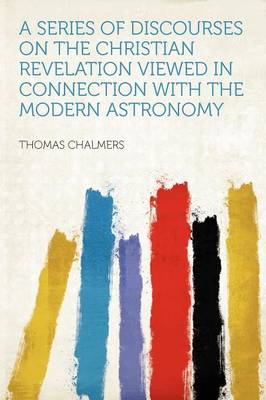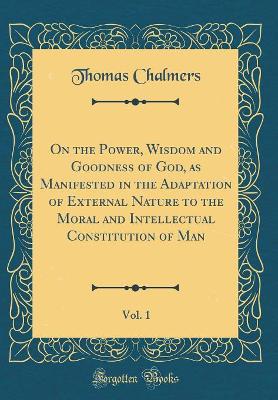Cambridge Library Collection - Religion
3 total works
A Series of Discourses on the Christian Revelation Viewed in Connection with the Modern Astronomy
by Thomas Chalmers
Published 24 September 2009
In 1817 the Scottish mathematician and churchman Thomas Chalmers (1780-1847), who was later invited to write one of the Bridgewater Treatises (also reissued in this series) published this book, based on weekday sermons preached by him in Glasgow. His main aim is to refute the 'infidel' argument that because the earth and humanity are such insignificant parts of the universe, God - if he existed - would not care about them. However, he is also addressing the 'narrow and intolerant professors' who 'take an alarm' at the idea of philosophy rather than incorporating science into their Christian preaching. Chalmers writes from the viewpoint of an admirer of science and modern astronomy. However, he also argues that wonder at the magnificence of creation and even acknowledging it as God's work is not enough, and that a truly moral Christian life is essential for salvation.
The eight Bridgewater Treatises of the 1830s aimed to contribute to an understanding of the world as created by God. This, the first treatise, by the Scottish mathematician and churchman Thomas Chalmers, proposes an 'argument for the character of the Deity, as grounded on the laws and appearances of nature'. It sees harmonies between the intellectual and material worlds as manifesting the hand of God in their creation, anticipating aspects of today's 'intelligent design' theory. Volume I includes chapters comparing virtuous and vicious personalities; the concept of habit; how external nature is adapted to man's moral constitution; and how moral and intellectual aspects of mankind lead to the civil and political well-being of society. Volume II provides specific examples of God's design including happiness and the connection between intellect, emotion and will, concluding that areas left as open questions by science's lack of proof are indications of divine architecture.
On the Use and Abuse of Literary and Ecclesiastical Endowments
by Thomas Chalmers
Published 22 December 2011
Scottish minister and social reformer Thomas Chalmers (1780-1847) is famous as the leader of the group of 470 ministers who left the Church of Scotland in 1843 to found the Free Church of Scotland, and as the author (in 1834) of the first Bridgewater Treatise (also reissued in this collection). Along with his theological interests, Chalmers was deeply concerned with educational reform in schools and universities. In 1827 he published this paper on university endowments, asserting that it was the state's responsibility to support religious and educational institutions, because churches, schools, and universities maintained the nation's Christian principles and character. Chalmers argued that only endowed national establishments were capable of ensuring the religious and moral well-being of the individual. In addition to his appeal for university endowments, he also advocated (unusually for his time) the extension of full civil rights to dissenters and Catholics.


